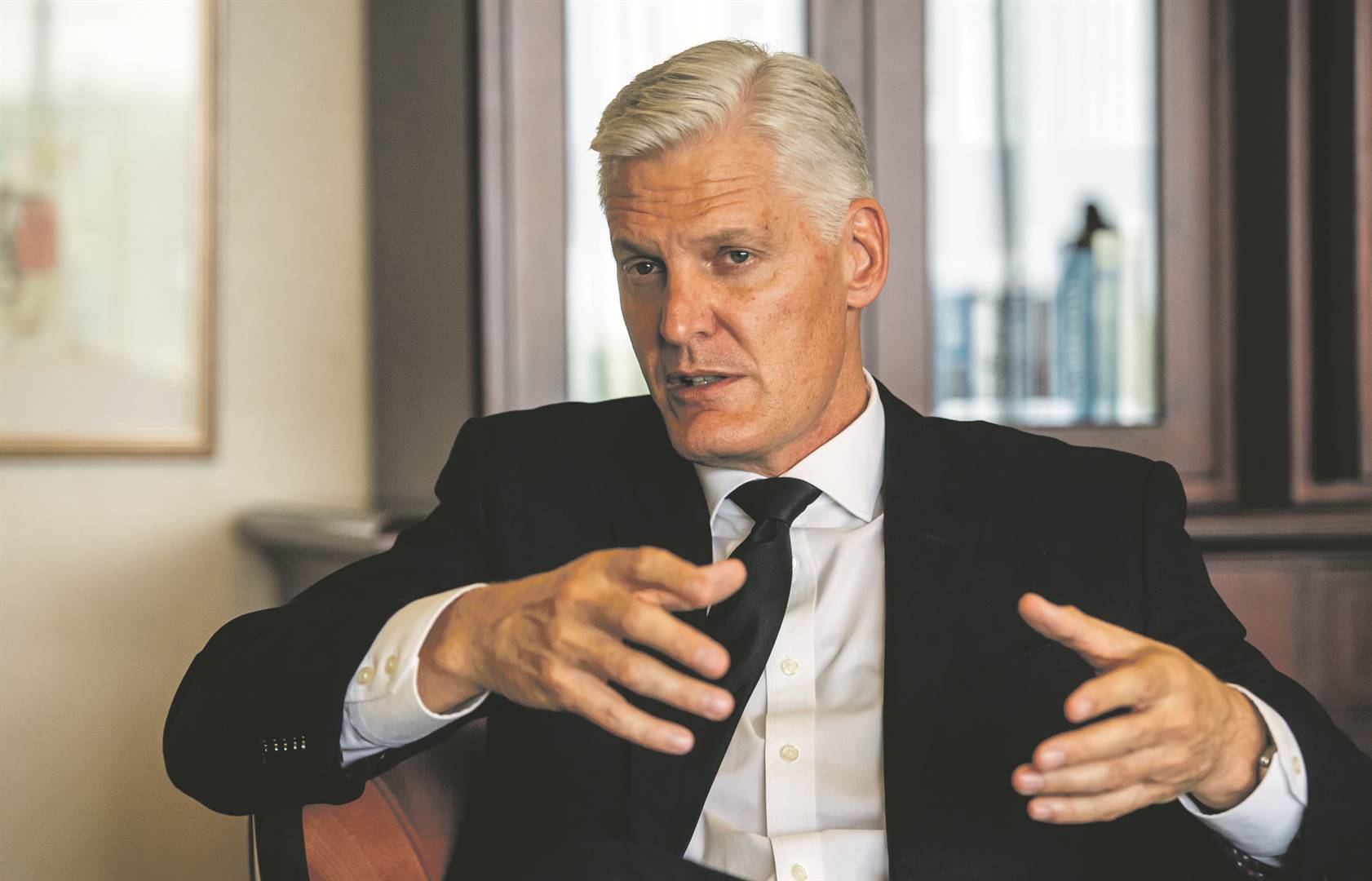
Eskom’s new group CEO, André de Ruyter, wants to slam the brakes on the process of unbundling Eskom.
This means that the goal set in Public Enterprises Minister Pravin Gordhan’s road map for Eskom, which would have seen a separate transmission company existing within the Eskom group by March, may fail to materialise.
Reflecting before acting is part of De Ruyter’s Eskom turnaround plan, which the board is expected to consider this week.
Gordhan revealed his Eskom road map in October, spelling out the plan to halt Eskom’s precipitous decline.
A key part was the unbundling of the power utility, so that it would eventually consist of three separate companies – responsible for power generation, transmission and distribution.
Eskom has already failed hopelessly at meeting some of the early goals set out in Gordhan’s plan.
These relate to the management of its rickety fleet of coal-fired power stations.
In terms of Gordhan’s plan, the fleet’s availability factor should have improved to 70% in December (from 67% in October last year).
By March, it was required to be at 73%.
Instead, availability declined even further in December (down to 60%) and the country was subjected to Stage 6 load shedding, a historic first.
With January almost over, the average availability factor for the year is still around 61%, although it has inched up slightly from the 57% recorded just after the new year.
According to Gordhan’s road map, the transmission company should have been functionally separated from the rest of the group by March, paving the way for it to be legally separated next year.
This would make it an independent company with its own management and board of directors, although still falling within the Eskom group.
The transmission company would be responsible for the 33 000km-long power network, including substations and transformers.
The company would function as an independent operator in the market, purchasing electricity from Eskom’s generation unit as well as from independent power providers, at the best price.
De Ruyter said Eskom would work towards the end-goals in the road map in a responsible manner, but it had to heed a variety of risks along the way.
According to De Ruyter, separating the group into three distinct legal entities has a variety of attendant risks, including implications for capital gains tax, the transfer of employees, regulatory issues, as well as relationships with Eskom’s financiers, who are responsible for the utility’s mountain of debt.
These creditors need to know exactly who owes them money, and that the relevant entity has a viable income base that will allow it to repay the debt.
De Ruyter said one option was to take two years to consult auditors, attorneys, consultants and bankers to prepare for the implementation.
This could, however, mean that Eskom’s focus would be internal, at a time when it is required to fend off load shedding and attend to urgently needed maintenance at its ageing power stations.
“I think if we have a divisional structure, and each division has its own income statement and balance sheet, and one begins to put the commercial structures in place, then it gives you an opportunity to have a real prototype that you can take on a road test,” he said.
“This means that when the day comes that you implement … you can effect a transition with a greatly reduced level of risk.”
Although he said the “prototype” could be ready relatively soon, De Ruyter did not want to commit to a deadline.
He said that Eskom would have to be able to show good progress “on the road to” the March goal, but that it must also guard against overly hasty implementation.
When it comes to the market mechanism, an internal version has already been put into effect.
On a daily basis, Eskom’s power stations must contract with the systems operator in Eskom’s transmission department, in respect of the amount of electricity it will provide.
Eskom must also equip itself to contract with third parties in this manner, said De Ruyter.
When it comes to existing contracts with independent power providers, Eskom must evaluate the advantages and disadvantages of each, and then determine whether these should be renegotiated in order for them to find a place in the new market mechanism.
“This applies to all contracts with Eskom,” he said.
“There are no holy contracts.”
 | ||||||||||||||||||||||||||
Get in touchCity Press | ||||||||||||||||||||||||||
| ||||||||||||||||||||||||||
| Rise above the clutter | Choose your news | City Press in your inbox | ||||||||||||||||||||||||||
| City Press is an agenda-setting South African news brand that publishes across platforms. Its flagship print edition is distributed on a Sunday. |




 Publications
Publications
 Partners
Partners








